阅读:0
听报道
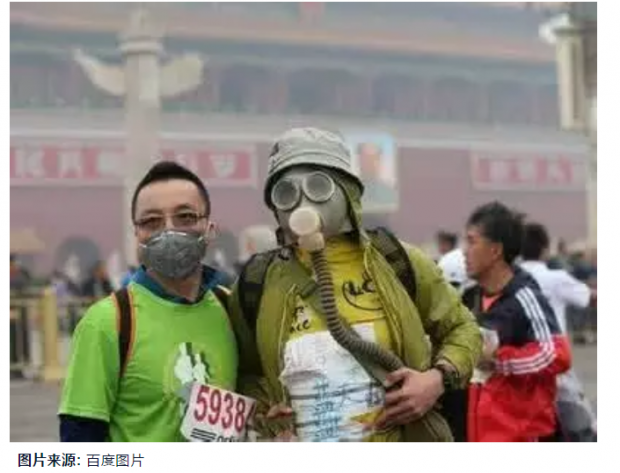
推文人 | 王倩
原文信息
Junjie Zhang, Quan Mu. Air Pollution and Defensive Expenditures: Evidence from Particulate-Filtering Facemasks[J]. Journal of Environmental Economics and Management.
一、引言
空气污染问题已经得到越来越多的关注,之前一些研究聚焦于环境污染与健康的研究(Brunekreef and Holgate 2002 、Englert 2004、Pope III and Dockery 2006 2013、Dominici and Greenstone 2014);然而空气质量也会影响人们的消费行为,本篇文章基于日均空气质量与消费数据考察空气污染对购买口罩行为的影响。
二、数据描述
本文的口罩消费数据来自淘宝和天猫提供的2013年1月到2014年4月的日均口罩购买指数。该指数分为一般口罩购买指数和pm2.5防雾霾口罩购买指数。AQI(Air quality index)来自环境保护部,由于2013年只有190城市设有环境监测站,还未能全面覆盖我国全部城市,所以本文只能利用这190个城市作为样本。
三、模型
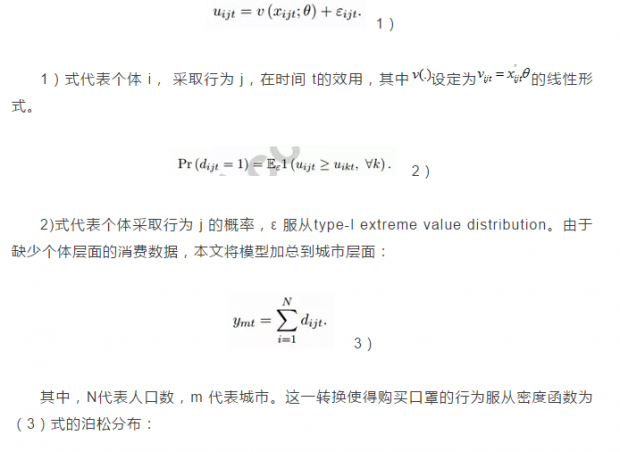
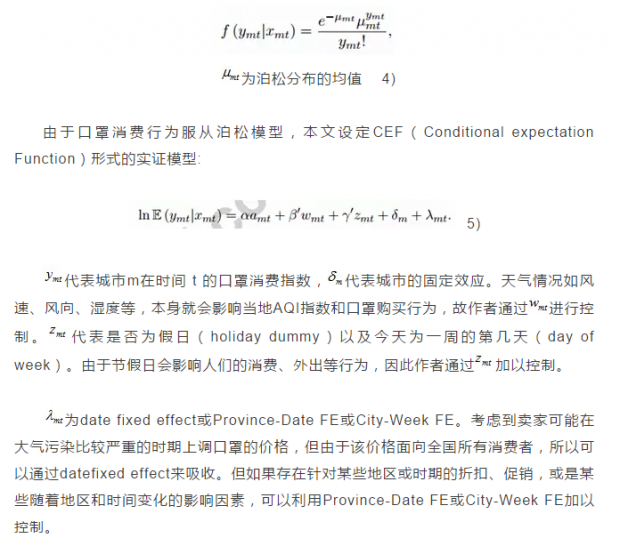
四、主要结果
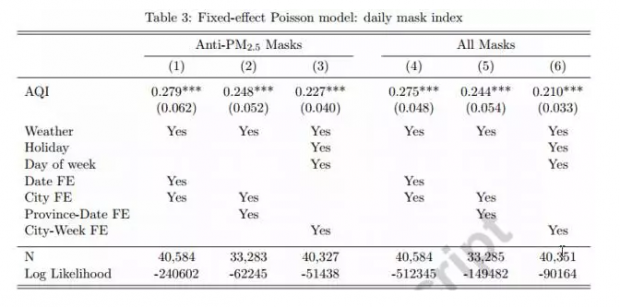
表三3)栏和6)栏可以看出,AQI指数上升100个百分点会增加23%防霾口罩的购买,增加21%一般口罩的购买。这一结果表明雾霾会显著地增加口罩的购买。
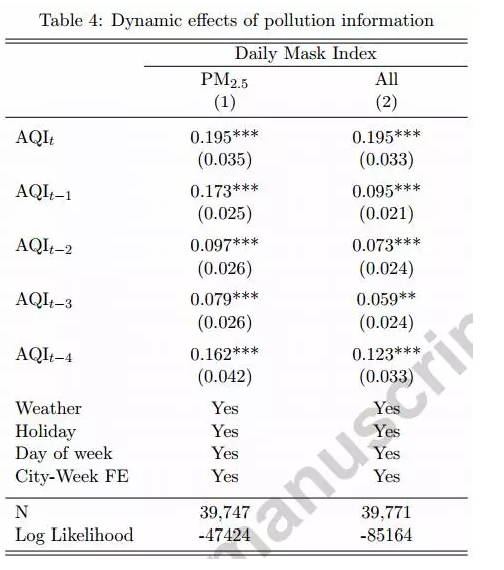
淘宝和天猫对于“交易成功”定义为购买的商品被买家签收。由于打包、运输需要时间,因此本文通过加入滞后项进行控制(在附注中提到,文章有加入了更多的滞后项进行test,但其他的系数不显著)。从表四可以看出AQI指数上升100个百分点,会增加70.6%的抗霾口罩消费(19.5% + 17.3% + 9.7% + 7.9% +16.2%)。
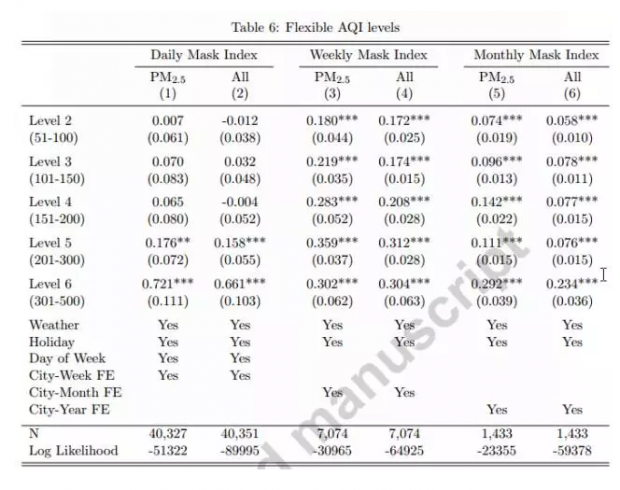
由于人们对于不同污染水平的反应不同,即污染非常严重时开始买口罩、污染不严重时得过且多,本文进一步将AQI划分为六种水平来考察人们对于不同大气污染的反应。作者将Level 1 (AQI<=50)限定为0,因此Level2的系数代表其与Level 1 的差异。1)栏、2)栏可以看出,对于不同的空气污染程度,人们购买口罩的意愿确实不尽相同,当AQI指数大于200时,系数开始显著。某些前瞻性的消费者,他们往往会在雾霾非常严重之前购买口罩,以防到真正需要用的时候购买不到的情况。如果这一现象非常普遍,那么利用日均的消费数据会低估消费者购买意愿。为解决这一问题作者将数据进一步加总到星期、月度层面,这样的做法同样可以解决由于包装、运输时间带来的影响(同表四)。从加总后的回归结果可以看出,即使在AQI < 200 时期,人们购买口罩的行为仍然显著。
由于Ghanem and Zhang (2014)发现我国2001-2010的AQI存在微调的情况,文章利用美国大使馆的PM2.5数据进行了稳健性检验,实证结果仍然显著。
Abstract
Individuals take preventive measures to avoid costly air pollution exposure. This paper provides new empirical evidence of pollution avoidance that Chinese urban residents purchase particulate-filtering facemasks to protect against ambient air pollution. The analysis is conducted with detailed and comprehensive data available on daily facemask purchases and air quality that became available only very recently. We find that this transitory air pollution avoidance behavior exhibits dynamics and nonlinearities, with significant increases of facemask purchases during extreme pollution episodes. The daily model shows that a 100-point increase in Air Quality Index (AQI) increases the consumption of all masks by 54.5 percent and anti-PM2.5 masks by 70.6 percent. The estimates from the aggregated model with flexible pollution levels are used to simulate the benefit of air quality improvement. If 10 percent of heavy pollution days (AQI≥201) were eliminated, the total savings on facemasks alone would be approximately 187 million USD in China. This result suggests that reducing the occurrence of “airpocalypse” events represents a significant opportunity to improve social welfare. Nevertheless, our estimates are likely only a small part of the benefit of clean air because facemasks can only partially reduce the negative health effects of air pollution and the costs of other avoidance behaviors are not included.

话题:
0
推荐
财新博客版权声明:财新博客所发布文章及图片之版权属博主本人及/或相关权利人所有,未经博主及/或相关权利人单独授权,任何网站、平面媒体不得予以转载。财新网对相关媒体的网站信息内容转载授权并不包括财新博客的文章及图片。博客文章均为作者个人观点,不代表财新网的立场和观点。




 京公网安备 11010502034662号
京公网安备 11010502034662号 